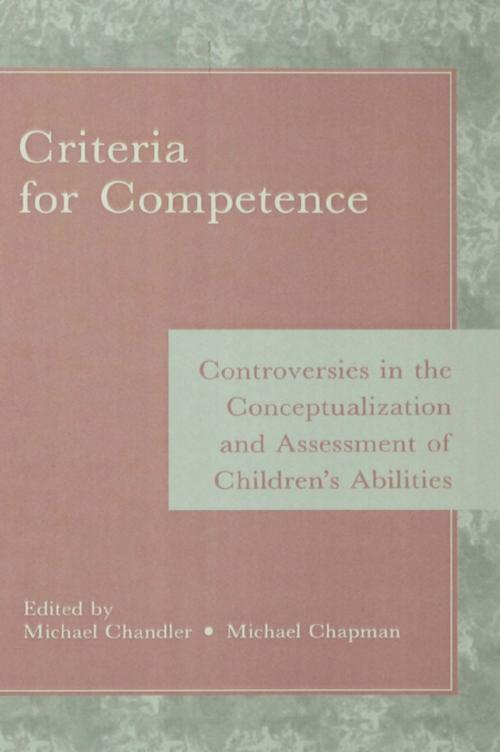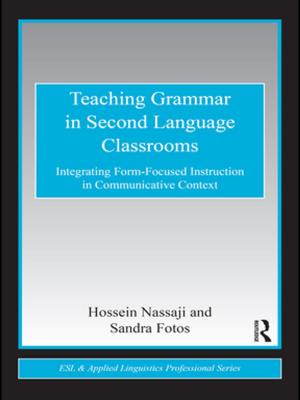Criteria for Competence
Controversies in the Conceptualization and Assessment of Children's Abilities
Nonfiction, Health & Well Being, Psychology, Developmental Psychology| Author: | ISBN: | 9781134755370 | |
| Publisher: | Taylor and Francis | Publication: | June 17, 2013 |
| Imprint: | Psychology Press | Language: | English |
| Author: | |
| ISBN: | 9781134755370 |
| Publisher: | Taylor and Francis |
| Publication: | June 17, 2013 |
| Imprint: | Psychology Press |
| Language: | English |
One of developmental psychology's central concerns is the identification of specific "milestones" which indicate what children are typically capable of doing at different ages. Work of this kind has a substantial impact on the way parents, educators, and service-oriented professionals deal with children; and, therefore one might expect that developmentalists would have come to some general agreement in regard to the ways they assess children's abilities. However, as this volume demonstrates, the field appears to suffer from a serious lack of consensus in this area.
Based on the premise that identifying relevant issues is a necessary step toward progress, this book addresses a number of vital topics, such as: How could research into fundamental areas (such as the age at which children first acquire a sense of self or learn to reason transitively) repeatedly yield wildly diverse results? Why do experts who hold to radically different views appear to be so unruffled by this same divergence of professional opinion? and, Are there grounds for hope that this divergence of professional opinion is on the wane?
One of developmental psychology's central concerns is the identification of specific "milestones" which indicate what children are typically capable of doing at different ages. Work of this kind has a substantial impact on the way parents, educators, and service-oriented professionals deal with children; and, therefore one might expect that developmentalists would have come to some general agreement in regard to the ways they assess children's abilities. However, as this volume demonstrates, the field appears to suffer from a serious lack of consensus in this area.
Based on the premise that identifying relevant issues is a necessary step toward progress, this book addresses a number of vital topics, such as: How could research into fundamental areas (such as the age at which children first acquire a sense of self or learn to reason transitively) repeatedly yield wildly diverse results? Why do experts who hold to radically different views appear to be so unruffled by this same divergence of professional opinion? and, Are there grounds for hope that this divergence of professional opinion is on the wane?















